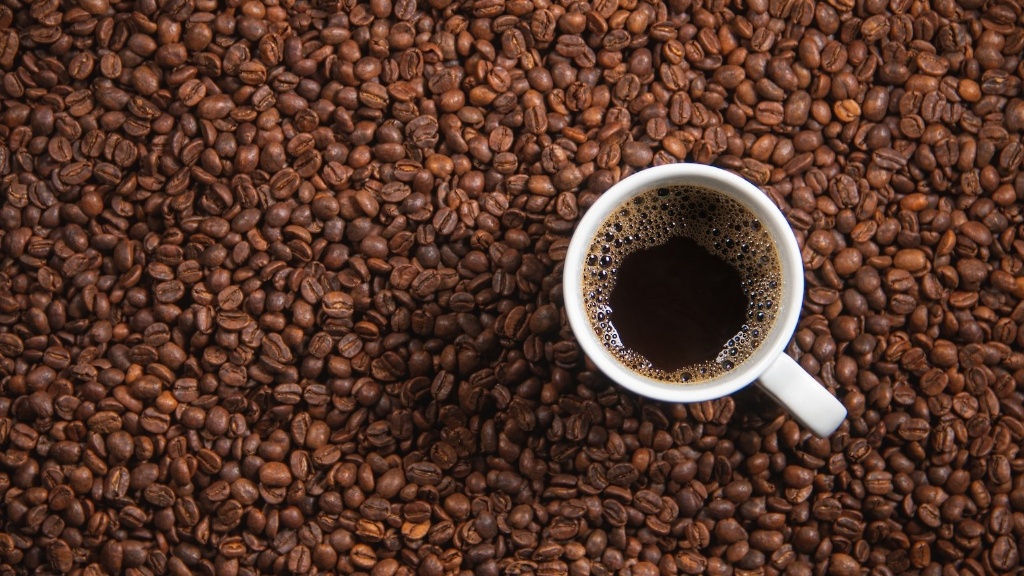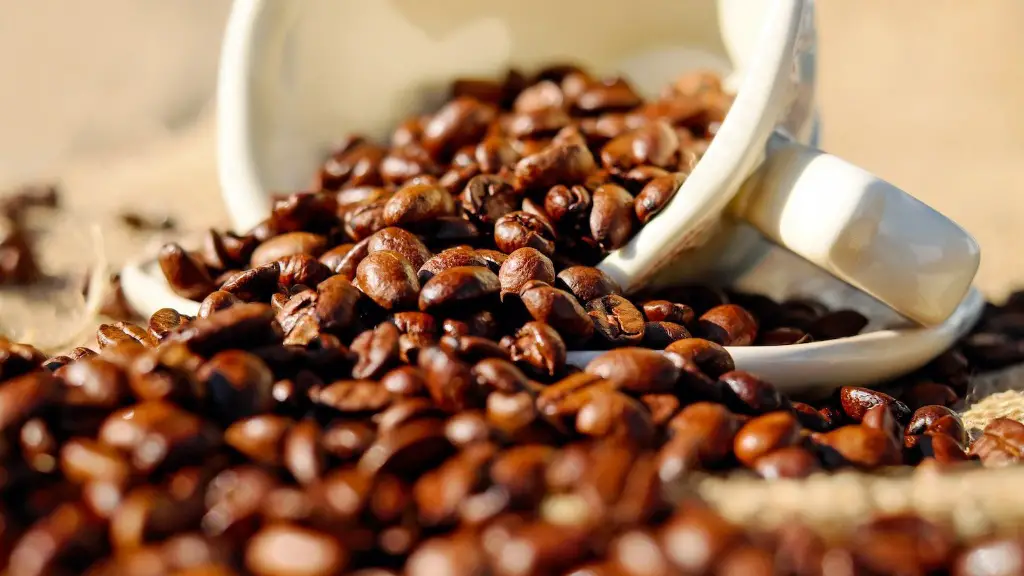Coffee and Weight Loss: The Pros and Cons
There is some debate on whether coffee can actually assist in weight loss. Many people suggest that coffee can be helpful in reducing appetite while giving you an energy boost. Drinks like black coffee, with no sweeteners, can be calorie free, making it more attractive than other beverages.Yet, other experts argue that coffee’s potential for weight loss is limited.
Studies on the role of coffee in weight loss have been inconsistent. Some studies have found that a few cups of coffee a day can cause significant reductions in body fat percentage. Other studies have also reported that coffee may increase the metabolic rate, helping the body burn more calories throughout the day. However, researchers have also found that regular large doses of caffeine can increase the metabolism for a limited amount of time, and that after about four hours the effects of caffeine begin to wear off and the metabolism starts to slow down.
Research has also suggested that coffee may have positive effects on appetite. One study reported that drinking more than three cups of coffee per day had a common decrease in perceived hunger. Other studies have also found that having a cup of coffee before meals can help control food cravings.
On the other hand, not all experts agree that coffee can be a helpful factor in weight loss. Some believe that due to its high caffeine content, coffee can have a powerful stimulant effect, which in turn can lead to higher levels of cortisol, a stress hormone associated with fat storage. Others suggest that drinking coffee every day can lead to strong coffee cravings, leading to excess consumption. Caffeine is also a diuretic, meaning that it can cause water imbalance and dehydration and this in turn can affect your performance and metabolism.
Does Coffee Relieve Stress?
Coffee has long been touted as a way to combat stress, and some studies have found that drinking coffee can lead to feelings of relaxation and improved mood. The coffee-drinking process, from the smell of a freshly brewed cup to the taste, can reduce stress and improve concentration. The caffeine in coffee also stimulates the production of serotonin, a neurotransmitter that is responsible for feelings of well-being and happiness.
In addition, coffee can help stimulate the production of dopamine, which is responsible for providing energy and making us feel alert. Coffee also contains antioxidants that can help protect the body from free radical damage caused by stress. A study conducted by Harvard University showed that drinking coffee can reduce inflammation and consequently increase energy levels and reduce stress.
Conversely, some experts suggest that over-consumption of coffee can have the opposite effect, leading to feelings of anxiety, restlessness, and irritability. Too much caffeine can increase cortisol levels, and caffeine can disrupt your normal sleep pattern. This can lead to long-term issues such as sleep disturbances and fatigue.
Health Benefits of Drinking Coffee
In addition to weight loss and stress-reduction, coffee can also offer a range of health benefits. Numerous studies have found that coffee may reduce the risk of diabetes, Parkinson’s disease, and certain types of cancer. Studies have also shown that drinking coffee can help boost your body’s metabolism and in turn help you lose weight.
Coffee can also help improve your mental alertness and focus. The caffeine in coffee can stimulate the brain and provide a short-term boost in mental performance. This is due to the fact that caffeine blocks adenosine, a neurotransmitter that can make you feel sleepy.
Coffee has also been found to have positive effects on cognitive performance and focus. Studies have shown that caffeine can help people concentrate and make them more productive. The effects can even last up to 24 hours, making coffee a great source of energy throughout the day.
Coffee can also be beneficial for the heart. Studies have shown that drinking coffee on a regular basis can help reduce the risk of cardiovascular disease. Coffee can also reduce bad cholesterol levels and increase good cholesterol levels in the blood.
What To Consider Before Drinking Coffee To Lose Weight
It is important to consider the potential risks of drinking coffee before using it to lose weight. Drinking too much coffee can lead to insomnia, jitteriness, increased heart rate, nervousness, and other side effects. It is therefore important to understand your own tolerance and limitations before consuming large amounts of coffee.
If you decide to use coffee as a tool for weight loss, ensure that you are consuming it in moderation. Studies have found that drinking up to four cups of coffee per day can help boost your metabolism without causing any significant side effects. However, you should avoid having caffeinated drinks in the evenings, as these can interfere with getting a good night’s sleep.
Another important thing to consider is that coffee should not replace healthy eating habits. You should still focus on eating a balanced diet and exercising regularly in order to lose weight. Coffee can help suppress your appetite and increase your energy levels, but it is not a substitute for proper nutrition.
Are There Alternatives to Coffee?
While coffee is a popular way to boost energy levels and reduce appetite, there are other alternatives to consider. Green tea is a popular choice, as it contains catechins that can help reduce food cravings and increase fat burning. Another popular choice is apple cider vinegar, which has been shown to help promote weight loss and reduce hunger.
Herbal teas are also useful for weight loss, as many of them contain plant compounds that can reduce appetite and help burn fat. If you’re looking for something to boost your energy levels without the use of caffeine, consider B vitamins or multi-minerals, which may also help reduce fatigue and improve alertness.
Finally, there are many other natural ingredients that can help you lose weight without the use of coffee, such as garcinia cambogia, chromium, and green coffee bean extract. These natural ingredients are said to help suppress appetite and boost metabolism. If you’re interested in any of these natural supplements, it’s best to consult with a doctor before adding them to your diet.
Can Coffee Be Part of A Balanced Diet?
Despite some doubts about whether coffee can help you lose weight, it can certainly be enjoyed as part of a balanced diet. If you’re looking for a more natural way to boost your energy levels and reduce hunger, coffee can be a great choice. Just make sure to stay within your caffeine limits and follow healthy eating habits.
If you do decide to drink coffee for weight loss, start slowly. Increase the amount of coffee you consume gradually. You may find that a small dose of coffee in the morning is enough to provide the energy boost you need and to keep you going throughout the day.
It is also important to remember that coffee should not replace a healthy diet and regular exercise. If you are considering drinking coffee to lose weight, make sure to discuss it with your doctor and to follow the recommended guidelines.
The Bottom Line
Coffee can be important part of weight loss as long as it is used responsibly. Drinking coffee can help give you the energy boost you need, and it can also help reduce hunger. But it’s important to remember that coffee should be consumed in moderation and should not replace a healthy diet. If you are considering drinking coffee to lose weight, make sure to chat to your doctor first, and to find the right balance between coffee consumption and healthy eating.





